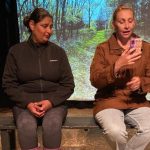By Dr Tanuka Palit, NIHR Academic Clinical Fellow in Primary Care, Centre for Academic Primary Care, University of Bristol
“You matter because you are you, and you matter to the end of your life. We will do all we can not only to help you die peacefully, but also to live until you die.” Dame Cicely Saunders
Many people express a wish to die at home. The proportion of deaths that occurred in the community (including private homes and care homes) rose significantly during the pandemic and has been sustained. As a consequence, the need to fund and improve our community palliative care services has never been more important. Earlier this year, this was recognised by a change in the Health and Social Care Bill to fund palliative care services in all areas. This will hopefully remove the postcode lottery that currently exists in the UK for … Read more









